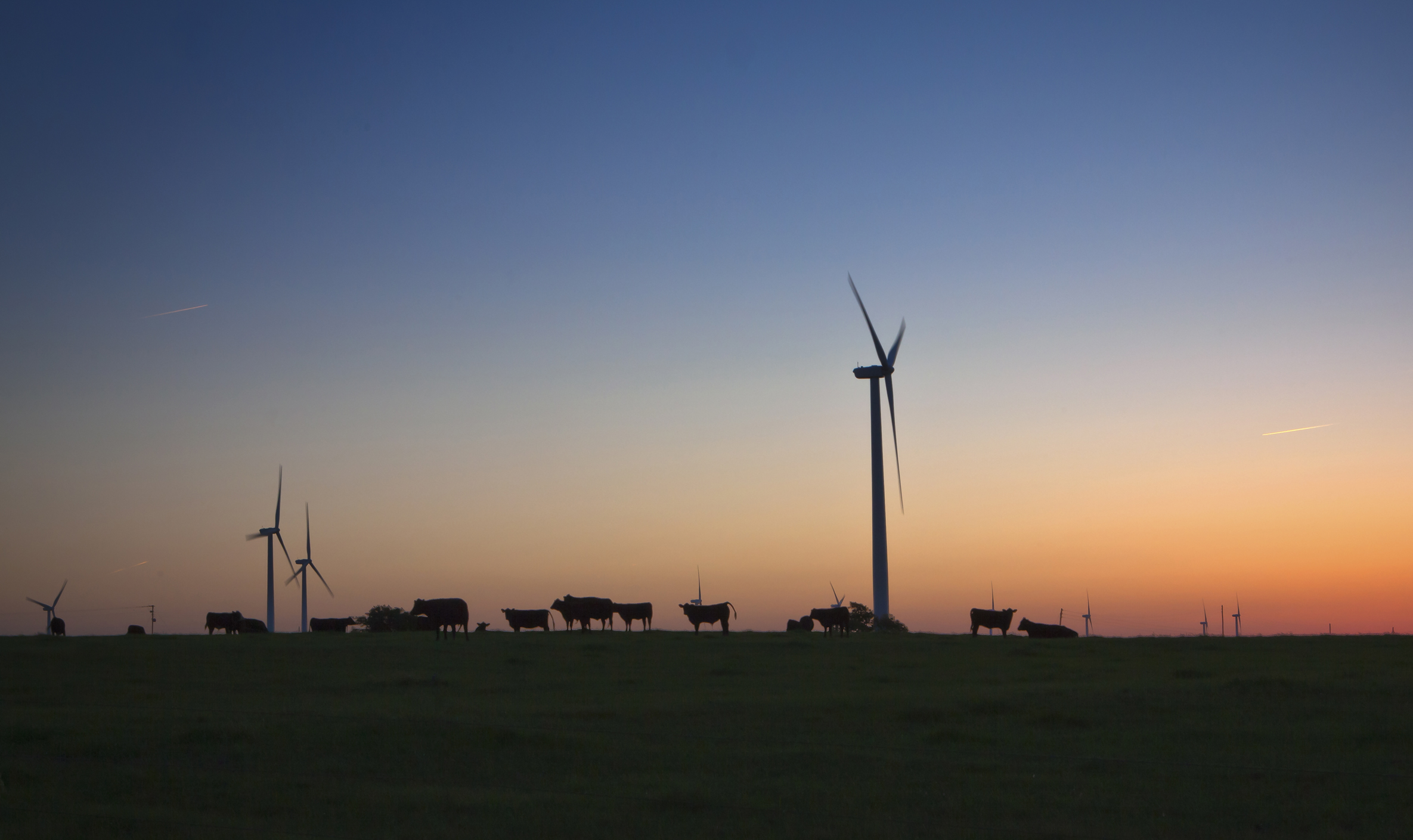
By Cyrus Reed
Since becoming a focal point of the struggle against the state’s power grab (remember HB 40?), Denton could be making a big misstep if it adopts the Denton Renewable Plan as proposed. Wait, adopting something called a “renewable plan” that would set a 70% renewables goal would be bad?!
Don’t get me wrong, 70% renewables is an impressive amount for any size utility. The irony of it all is that Denton Municipal Electric (DME), and apparently a majority of Denton City Council, appear to be convinced that to get to that level of renewables, the city needs to invest in the same fossil fuel that the community fought so hard to protect themselves from: natural gas.
The utility’s plan originally included 220 MW of new natural gas generation, which in today’s market means it probably comes from fracking operations. The item on tomorrow’s city council agenda would authorize up to $265 million in revenue bonds for the construction of these natural gas plants.
Months ago at a public meeting, city and utility officials heard from scores of Denton community members who were critical of the proposed investment in new natural gas power (here’s our recap). Not only would it pour salt in the wounds of the community, which the Texas Legislature thwarted last session by taking away the authority of cities to protect themselves from fracking, more natural gas generation would add to the region’s already huge smog problem (more on that here).
You Know the Feeling When You Do the Wrong Homework Assignment?
The Sierra Club and several other organizations recommended that Denton city leaders pause on considering the plan to study alternatives. What would the plan look like if it was 100% renewable energy? What if they continued the 70% committment, but looked at a mix of renewables, energy efficiency, demand response, and energy storage to yield the greatest possible clean energy portfolio at the most competitive price?
The city hired a firm that does energy scenario work all the time - The Brattle Group. However, the scenarios they ran didn’t exactly match the expectations of some council members, and many in the community.
Earlier this month, that independent study became publicly available (LINK), and was discussed at both a June 6 and June 14 City Council meeting. The three scenarios studied were:
- The Denton Renewable Plan, consisting of 70% renewables and the 12 natural gas plants, as well as some purchase of market power;
- Business as usual which consisted of relying on 40% renewables, continued reliance on the coal plant, and market power purchases;
- Business as usual without their share of the Gibbons Creek coal plant, relying on 40% renewables, and purchases off the market.
Surprising no one, the Brattle Group confirmed DME’s analysis and found the Denton Renewable Plan to be the best option, though they did state that at least for the first five years of the plan (2019-2024), Denton would only need the nine natural gas plants to maintain the goal of 70 percent renewable power. Essentially, the Brattle Group and DME argue that without the back-up capability of flexible natural gas units, they won’t be able to provide both reliability and a mechanism to keep prices low for DME customers when price spikes occur.
Council Reaction: Mkay?
At a work session on Tuesday, June 14, City Council seemed to agree with the Brattle Group’s assessment, with six of the seven city council members expressing general support for the plan. In fact, four of the seven members said they planned on voting yes on the plan (One slight tweak had to do with favoring the building of all 12 natural gas plants at one site rather than at two separate sites). Both Mayor Chris Watts and new member Sara Bagheri expressed some concerns over whether all 12 natural gas plants were needed and the high dollar investment it would put on the backs of Denton ratepayers
Councilmember Keely Briggs told her colleagues and the audience in attendance that she remained opposed to the plan and believed further investigation of other resources was needed, including coastal wind, energy storage, demand response and local solar. She also expressed her concern that the Brattle Group not only had failed to adequately study these options, but had failed to examine specific scenarios that Council had asked for, including a 100 percent renewable option and a 70 percent renewable option with a combination of local solar, energy storage and demand response. While she noted Brattle Group had included a brief discussion of battery storage as an alternative, they relied on 2013 data when the cost of batteries was significantly higher than today, and when their performance had not improved to provide additional capabilities.
Indeed, Sierra Club provided the Denton City Council with significant information about recent battery storage acquisitions and development that were never addressed by Brattle or the DME.
What’s On Tap Tomorrow?
June 21 promises to be well-attended city council meeting, with significant community opposition to the natural gas plants. Sierra Club has continued to advise Denton to slow down the rush to build them, and carefully consider the future of the coal plant, which should be retired rather than sold, as well as new technologies like energy storage and demand response before investing in additional fossil fuel generation. Before committing Denton residents to $265 million in new revenue bonds, DME and city council should do a true analysis of the many alternatives, from local solar, to storage to energy efficiency.